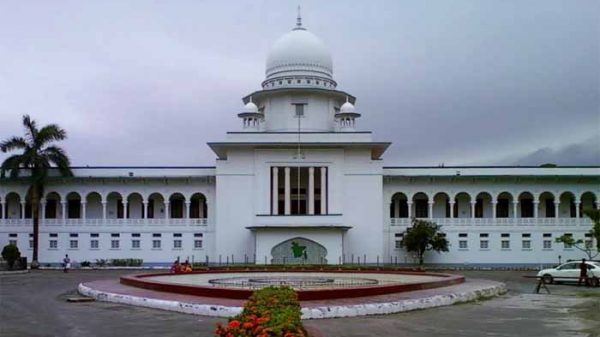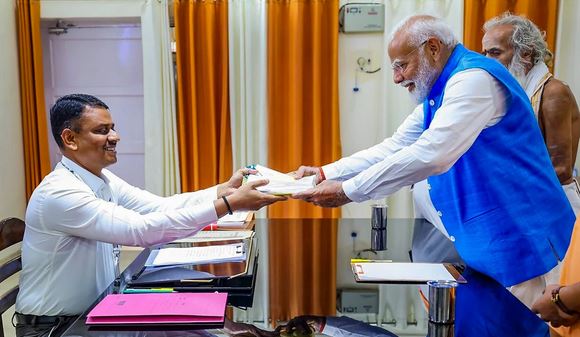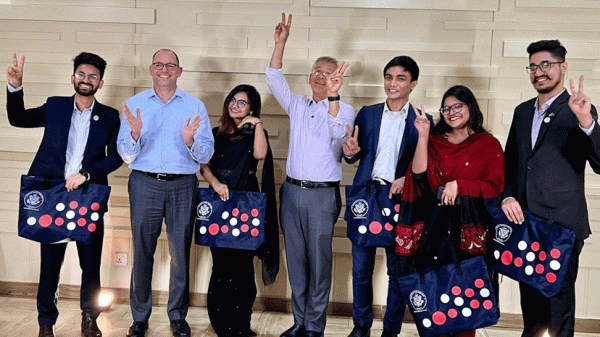Inexperienced, sick cos grab Bangladesh market

Shawdesh Desk:
A host of inexperienced, sick companies swarmed into Bangladesh’s renewable energy market, apparently attracted by lucrative tariffs that promised high profits.
The group of new renewable enthusiasts, among others, included poultry businessmen, feed mill owners, real estate traders, infrastructure construction companies, ready-made garment businessmen, a medical college hospital, and a manpower recruiting agency.
Energy experts say that implementing a quality project to harness solar, wind, and hydro energy at an affordable cost requires diverse knowledge, especially in densely-populated Bangladesh, where land is scarce and any infrastructural expansion threatens to reduce agricultural land.
In the past 16 years since adopting the renewable energy policy of 2008, energy experts say that Bangladesh has not been able to implement a single quality renewable energy project, mainly because it could not attract experienced companies interested in the sector.
As a result, the renewable energy market expanded slowly, and costs went far higher than the global average, denying people any respite from ever-increasing electricity prices.
Reputed renewable energy companies, however, are not interested in investing in Bangladesh, despite high profits, said energy experts, because of a lack of competitive atmosphere and hidden costs.
‘Reputed investors avoid getting involved in anything that is not transparent,’ said Dipal Barua, chief advisor of Bangladesh Solar and Renewable Energy Association, a platform for renewable energy businessmen.
A renewable energy project needs to secure approval from the cabinet committee on government purchases first before signing a power purchase agreement.
Years could be spent having the PPA signed with the Bangladesh Power Development Board before construction begins, often involving hidden costs along the way and a lot of lobbying, renewable energy investors alleged.
Companies can invest individually or through joint ventures with foreign investors, often partnering with local companies in renewable energy projects.
‘Companies need to be innovative and professional to offer renewable energy at an affordable price,’ said Dipal.
A review of 75 renewable energy projects listed by the BPDB, including the 10 projects in operation, revealed a host of companies that do not have any prior experience in renewable energy.
For instance, Enam Medical College Hospital, a private institution based in Savar and owned by former state minister for disaster management and relief Enamur Rahman, together with two Chinese companies, received approval in November last year for a 100MW solar power plant in Feni with a tariff of Tk 11 per unit.
‘Establishing a solar power plant is very easy,’ said Enam, also the chairman of the EMCH, adding that he learned all about it once visiting a solar power plant.
Institutions such as the WB, ADB, and IDCOL have already expressed interest in extending loans to the Tk 1,500 crore project, he said.
Enam owns 34 per cent of the solar plant, with his two other partners owning 51 per cent and 15 per cent.
There are half a dozen textile and garment companies, several construction companies, real estate businesses, agro-product sellers, and a motorcycle manufacturer among the companies involved in renewable energy projects.
Even a recruiting agency, along with two partners, including one from China, got approval to build a solar power project in Bandarban.
The recruiting agency was among the 150 agencies listed in 2020 by Bangladesh Manpower Export and Training as institutions that did not participate in 25 years or more in manpower export.
Fu-Wang Bowling and Services is another company listed by the BPDB as approved for building a 47MW solar power plant in Panchagarh. The solar project was listed as shelved, but it was never cancelled.
The Dhaka-based Fu-Wang Club was accused of evading more than Tk 41 crore in VAT in 2021.
Shunfeng Investment Ltd, a Chinese company, has two solar power projects, one of which rolled into operation in March 2021, four years after being approved and about two and a half years after the signing of the PPA.
In 2019, Shunfeng announced plans to sell one of its subsidiaries and shed overseas operations because of debt burdens, according to Renewables Now, a provider of business news and market intelligence services.
The second solar power project taken up by the Chinese company was approved in December 2018 and would not come into operation until June next year.
‘A quality power project completes on time,’ Hasan Mehedi, member secretary of the Bangladesh Working Group on Ecology and Development, a platform for green activists, said.
A solar power project should ideally be completed in 13 months, said Mehedi, explaining two other essential components of a quality project – reliable electricity supply and the use of quality machinery.
The 30MW solar power project in Rangpur came online in August 2022, almost eight years after it was approved and exactly five years after the signing of the PPA.
Bangladesh’s largest solar power project of 200MW in Gaibandha came online in January last year, about eight years after being approved and over five years into signing the PPA.
Approved in 2015, the Dharmapasha 32MW solar power plant in Sunamganj is yet to be operational, eight years after the PPA was signed.
Bangladesh has in operation only 10 solar power plants with a capacity of 459.3MW.
A total of 12 countries are involved in 75 renewable energy projects, including the ones already in operation, with a capacity of 5,489.6MW.
China alone is engaged in building 22 power plants with a capacity of 1,601MW.
Bangladesh is involved in building 1,258MW, followed by Singapore co-financing solar power projects with capacity of 728MW, United Arab Emirates co-financing 470MW, Japan 400MW, India 250MW and Germany, Netherlands, United Kingdom and Korea co-financing 100MW or a bit more each.
Countries like Norway, France, and the United States have invested in solar power projects with capacities of only 50MW each.
Some approved solar power projects have been waiting to sign the PPA for six years.
The tariff per unit for these projects ranges between Tk 20.87 and Tk 7.68. The average tariff is above Tk 10 per unit.
In 2022, the International Renewable Energy Agency estimated the global average cost of solar electricity to be Tk 5.42, saying that solar energy production costs have fallen by 89 per cent and wind energy costs by 69 per cent since 2010.
In 2023, solar tariffs fell to Tk 5.8 in Japan and Tk 3.04 in India.
The Institute for Energy Economics and Financial Analysis’s lead energy analyst, Shafiqul Alam, estimated that the reasonable solar power tariff in Bangladesh should be Tk 8.5 per unit, which can be easily reduced to Tk 6.5 with some government initiatives.
‘Bangladesh’s renewable energy sector undoubtedly is too lucrative to attract all kinds of investors,’ he said.
Some of these investors also include Bangladeshi giants involved in the fossil fuel business. They have earned millions of dollars in capacity charge and other costs since 2008, as fossil fuel-based power generation capacity jumped by over fivefold.
Fossil fuel accounts for about 97 per cent of Bangladesh’s installed power generation capacity of 26,844MW.
Bangladesh has set a target of sourcing 10 per cent of its power from renewable sources by 2020.
Energy experts suspect part of the delay in implementing renewable energy projects is deliberate, for delayed renewable energy means more fossil fuel use and even more profits.
PDB member Khandaker Mokammel Hossain admitted that renewable projects were not very effective.
‘These projects are selected unsolicited and picked by the ministry. The credentials of companies implementing the projects rarely get verified,’ he said.























Leave a Reply